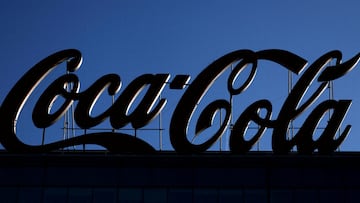Love Diet Coke? Do you feel like you’re addicted to it? There’s a scientific reason why you’re hooked
Launched in the summer of 1982, Diet Coke was marketed as a healthier alternative to regular soda - without the sugar or calories.

Diet Coca-Cola first hit supermarket stores in July 1982. Initially aimed at more health conscious soda drinker, Diet Coke was branded as a low calorie, low sugar alternative to the classic original.
More than four decades on, the debate continues about whether Diet Coke is actually better for you than regular Coca-Cola - especially among those who are trying to shed a few pounds, or cut down on their sugar intake.
A single 12 oz can of regular Coca-Cola contains 39 grams of sugar (high fructose corn syrup) and 150 calories, and a 20-fluid-ounce bottle contains 65 grams of sugar and 210 calories. Diet Coke meanwhile contains no sugar as it sweetened with artificial sweeteners such as aspartame... etc. and its calorie count is negligible (less that 0.5 of one calorie).
How addictive is Diet Coke?
The big question for most soda drinkers is whether Diet Coke does help you lose weight and whether it is addictive or not.
For some food and addiction science experts, that is the root of the problem. Some studies suggest that artificially sweetened sodas such as Diet Coke can trick the brain and metabolism as they hijack the brain’s reward and motivation system. This can lead to increased cravings, making you drink more. And while Diet Coke has no sugar or calories, it is also low on nutrients, so your body will still essentially be hungry and still waiting for nourishment.
Then there’s the caffeine, a central nervous system stimulant which is mildly addictive. If you’re reaching for a Diet Coke thinking it’s a light pick-me-up, you’re not wrong—but it’s worth knowing how its caffeine content stacks up against other popular beverages, and how it affects your body.
Caffeine breakdown
Here’s how the numbers compare:
| Beverage | Serving Size | Caffeine Content |
|---|---|---|
| Diet Coke | 12 oz | ~45 mg |
| Brewed Coffee | 5 oz | 60–150 mg |
| Black/Green Tea | 5 oz | 40–80 mg |
That means a single cup of coffee can pack up to three times the caffeine of a Diet Coke.
Diet Coke offers a modest caffeine dose compared to coffee or tea, making it a gentler option for those sensitive to stimulants. But like all caffeinated drinks, moderation is key—especially if you’re prone to anxiety, sleep issues, or headaches.
Related stories
Get your game on! Whether you’re into NFL touchdowns, NBA buzzer-beaters, world-class soccer goals, or MLB home runs, our app has it all.
Dive into live coverage, expert insights, breaking news, exclusive videos, and more – plus, stay updated on the latest in current affairs and entertainment. Download now for all-access coverage, right at your fingertips – anytime, anywhere.
Complete your personal details to comment